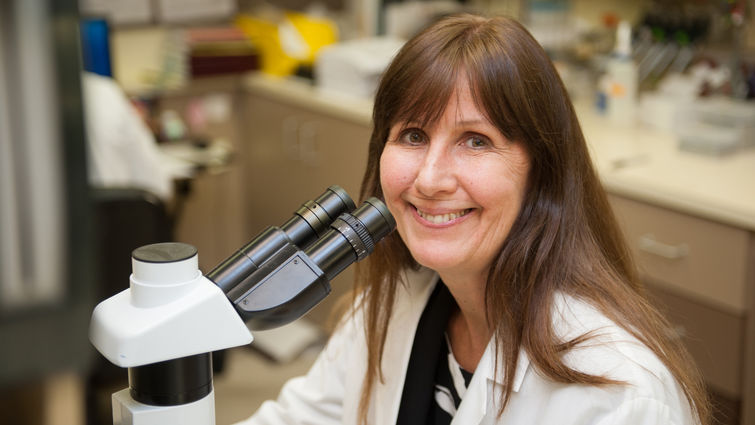
A Loma Linda University School of Medicine faculty member was awarded the 2018 International Space Station Compelling Results Award in Biology and Medicine in July for her research on the impact of microgravity and spaceflight on neonatal and adult cardiovascular progenitor cells.
Mary Kearns-Jonker, PhD, received the award at the International Research and Development Conference on July 26 in San Francisco. Results from the study were published in npj Microgravity, a subset of the scientific journal Nature.
“This entire project has been an absolute team effort,” said Kearns-Jonker.
This award represents to us the knowledge that people are looking at the research we’re doing and they’re excited about our findings. I think it’s encouraging to everyone who has worked so hard on this project.
Kearns-Jonker’s research and insight could help scientists gain knowledge in the manipulation of human cardiac stem cells, positively impacting the development of stem cell therapies.
In her research, Kearns-Jonker collected cardiovascular progenitor cells from neonatal and adult patients. In June 2017, these cells were launched to the International Space Station on SpaceX CRS-11, where they were cultured for 30 days. She and her team found that cell culture in space impacts cell proliferation and differentiation of cardiovascular progenitor cells – in other words, microgravity conditions increased the regenerative potential of heart stem cells. Mimicking these effects on Earth may be beneficial for cardiac repair. Their findings also shed light on strategies to preserve heart stem cell health in astronauts.
Kearns-Jonker said she hopes this research will continue to make strides toward understanding the impact of the space environment on stem cells and the identification of new ways to apply this information to address wide-spread issues like heart disease.
